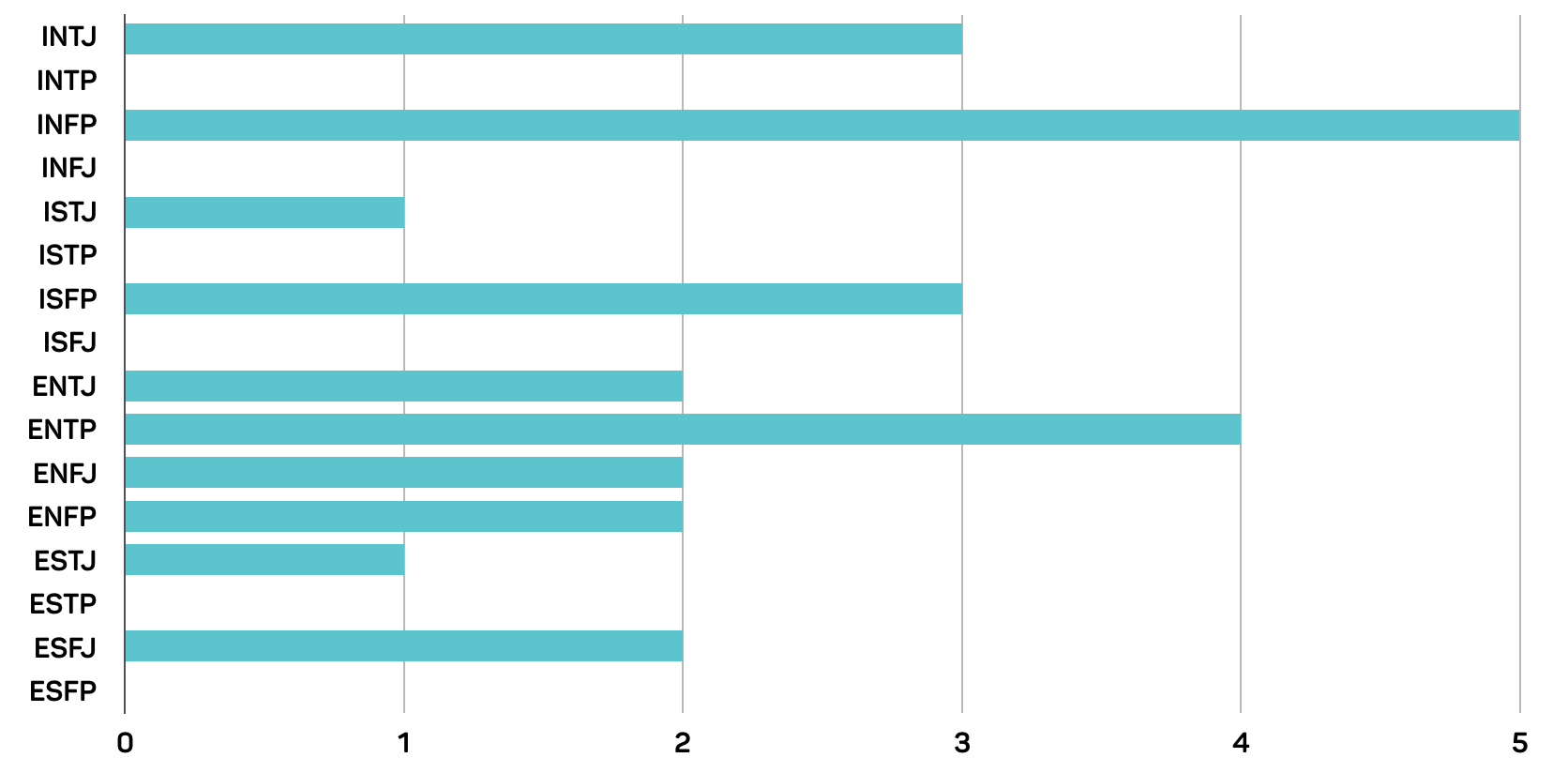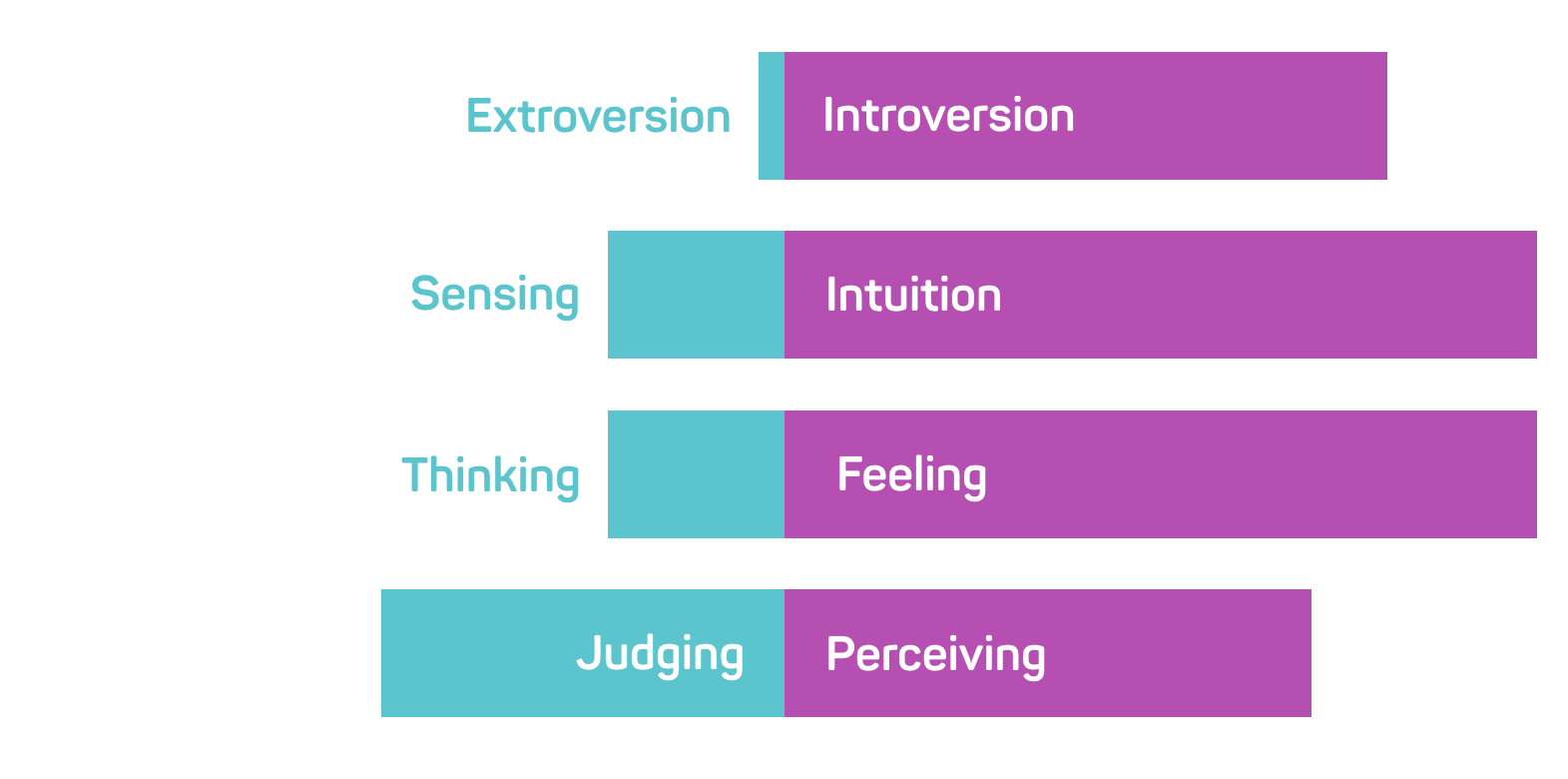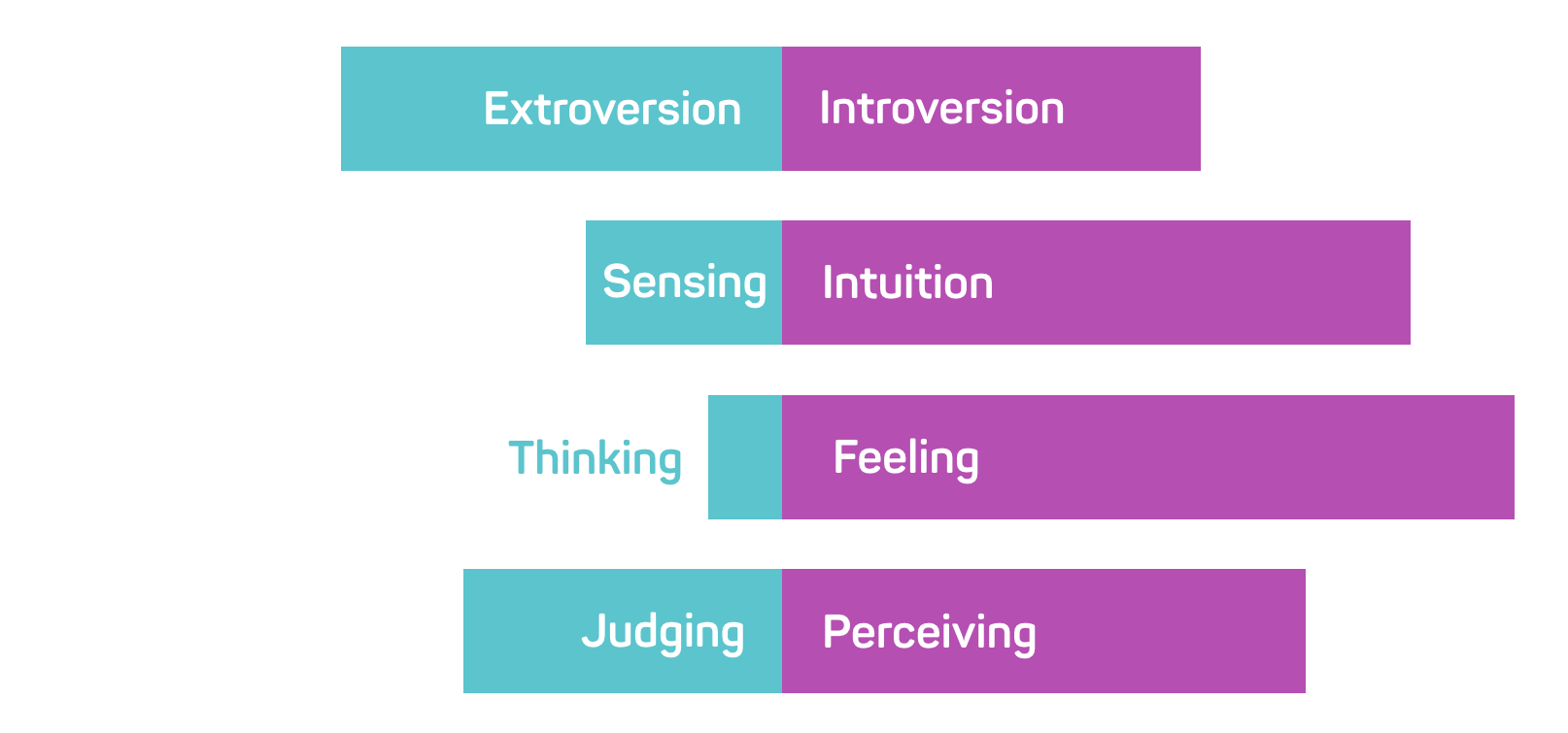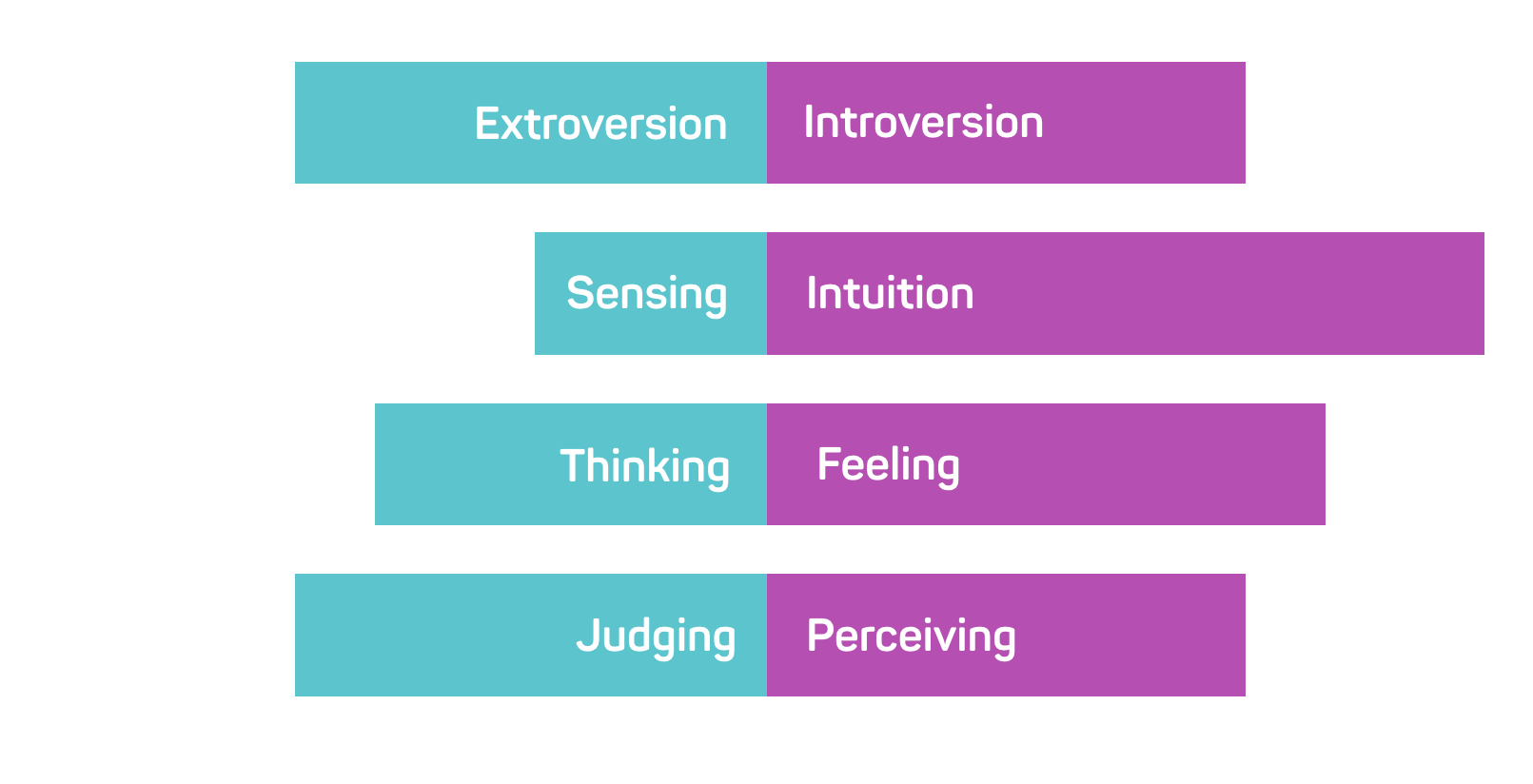Have you ever wondered what kind of people live and thrive in the tech startup world? Well, I was curious, so I forced everyone at mabl to take a personality test:

What Personalities Make Up mabl?
We have a team with impressive backgrounds, from Vanderbilt Ph.Ds and book authors, to MIT-alum and ex-Googlers. But when we strip everything away and take away the titles, the degrees, the resumes... who are we? Is there a secret formula to making this tech startup business stick? I was itching to know.
Disclaimer: I am by no means a personality expert. I don't even know what you'd call one. A personaligist?
Anyway - take my analysis with a grain of salt, and enjoy the read!
If you're not familiar with 16 Personalities, it's very similar to the Meyers Briggs framework where specific traits in combination form 16 various personality type groupings. Of course, we're all unique little snowflakes, yada, yada, yada, so the framework isn't meant to put anyone in a box. Rather, it's elastic in the way that you can fall anywhere between each of these four spectrums:
(I) Introverted ← or → (E) Extroverted - The source of your energy. Are you a people-person (E) or do you need to recharge with time to yourself (I)?
(S) Sensing ← or → (N) Intuitive - How information is perceived. Do you take more cues from what's happening around you (S), or internally, through past experiences, imagination, etc (N)?
(T) Thinking ← or → (F) Feeling - How information is processed, how decisions are made. Are they influenced more by emotions (F) or logic (T)?
(J) Judging ← or → (P) Perceiving - How you act upon the information you've processed. Are you more likely to create plan and follow it (J), or are you more likely to improvise along the way and keep an open mind (P)?
Personality Type Breakdown
Here are the results of the poll:

We can see that 1 in 5 mablers are the INFP type - Introverted, Intuitive, Feeling, Perceiving, or simply, Mediators, for quick recall. Here are a Mediator's strengths based on
16personalities' description:
Idealistic
Seek and Value Harmony
Open-Minded and Flexible
Very Creative
Passionate and Energetic
Dedicated and Hard-Working
What I immediately noticed was how in harmony those strengths were with our company values: Insight, Drive, and Positivity (I've already written about how we apply those values at mabl, so I won't dig in too deep here). It's also notable that those three values are based on what the early team was already doing well.
Then I dug into the workplace habits:
"In the workplace, Mediators face the challenge of taking their work and their profession personally. To Mediators, if it isn’t worth doing, it isn’t really worth doing... they value harmony, need an emotional and moral connection to their work, and loathe bureaucratic tedium."
That was also an easy one to connect to mabl. Being in a startup can be risky business, and sometimes requires long hours. If your heart isn't in it, you can quickly lose steam. Another thing that stuck out to me is the loathing of "bureaucratic tedium." Our startup culture gives you that freedom in many senses, organizationally (we have a flat hierarchy here), and in how we keep the overhead low when planning, releasing, evaluating, and pivoting when designing sprints and goals.
Ok, so that's the majority of mablers, but let's break it down by department!
Who are our engineers?
This is what our engineering team looks like:
Engineering Team: INFP
 Though only 1 INFP response was from engineering, the entire engineering team together adds up to the INFP Mediator personality. Though I wasn't surprised by the big lean into introversion, I was surprised that the team placed higher on the Feeling side of the spectrum. But it started to make more sense when I read further into the Mediator type:
Though only 1 INFP response was from engineering, the entire engineering team together adds up to the INFP Mediator personality. Though I wasn't surprised by the big lean into introversion, I was surprised that the team placed higher on the Feeling side of the spectrum. But it started to make more sense when I read further into the Mediator type:
"Mediators are guided by their principles, rather than by logic (Analysts), excitement (Explorers), or practicality (Sentinels). When deciding how to move forward, they will look to honor, beauty, morality and virtue."
Emotionally-backed decision-making - when designing a new feature, for example - makes sense when you consider that the principles behind those decisions encourage high-quality results. When probing the INFJ engineer about his decision making process when designing a solution, it was no less research-oriented than I would expect from a high-performing developer, but the motivator behind his careful research is what made the difference. Take a look:
I probed a couple of "Feeling" engineers, asking them what motivates them to choose the best solution for solving any given problem. They both told basically me:
"I'm a bit of a perfectionist. It doesn't feel satisfying having an inelegant solution. And it feels good when something I personally built is running well, and firing on all cylinders."
On the other hand, a more Thinking-leaning developer replied with a much more calculated response:
"The further down the wrong path you get, the higher the cost of getting back out."
Duh. It's simple. It's about efficiency. Cost. Moolah.
So I concluded that just like an art, engineering has heart in it. Soul. Identity. Depending on who you are.
Finding the Perceiving and Judging trait to be almost equally centered complemented how our development team works, too. Being more perceiving means you have more flexibility when going after a project; you might not know all the details, and you'll improvise when you need to, or see the opportunity to. Being a judger would mean the opposite, where you'd make a plan at the beginning, and stick to it.
Our development team does a little bit of both. They first outline the high-level tasks, breaking them down into manageable pieces (what can be done within a sprint). When they pull down a task from the Trello board, they might not always know what's going to happen as they're going in, which requires a little improvisation throughout the sprint. So all in all, it all makes sense. I'm satisfied.
Who's our Go-To-Market team?
Our GTM (Go to Market) team consists of marketing (product, demand-generation, content creation), Sales, and Customer advocacy (Lisa Crispin).
Here's how our GTM team adds up:
GTM Team: ENFP
 As a whole, the GTM team is an Extroverted, Intuitive, Feeling, Perceiving, or a Campaigner. Here are a Campaigner's strengths:
As a whole, the GTM team is an Extroverted, Intuitive, Feeling, Perceiving, or a Campaigner. Here are a Campaigner's strengths:
Curious
Observant
Energetic and Enthusiastic
Excellent Communicators
Know How to Relax
Very Popular and Friendly
As you may know, a Marketer's job is about taking something and making it resonate it with someone else's deepest wants, inclinations, desires. Lo' and behold, the first thing I see on the Campaigner's description page, a pull quote that exactly fits the bill:
"It doesn’t interest me what you do for a living. I want to know what you ache for – and if you dare to dream of meeting your heart’s longing. It doesn’t interest me how old you are. I want to know if you will risk looking like a fool – for love – for your dreams – for the adventure of being alive."
- Oriah Mountain Dreamer
Campaigners are particularly skilled at making connections between seemingly disparate ideas. They tend to be more sociable, and use their intuition to parse through the small talk to get into deeper interactions. Though sales and marketing can use this trait to ultimately sell their product or services, they really do believe in the vision behind their product, and they're going to approach this seemingly unauthentic transaction with genuine curiosity and energy.
Another piece that struck a chord:
"There are two basic things that Campaigners seek most in the workplace: The chance to explore new ideas, and the chance to conduct that exploration alongside other people who share their excitement."
Our GTM team is always experimenting with new things, seeing what sticks, what doesn't, and we always do so with an open attitude that allows us to learn all along the way without getting to dragged down by unmet expectations. And with positivity and energy, the whole team approaches any new experiment with the belief that a single idea can change the world.
Who's mabl?
As a whole, mabl is an Extroverted, Intuitive, Feeling, Judger, or Protagonist.
mabl as a whole: ENFJ
Here are a Protagonist's strengths:
Tolerant
Reliable
Charismatic
Altruistic
Natural Leaders
Honestly, it took a few minutes for me to place mabl when looking at the strengths alone. But then I found the explanation of a Protagonist to be inspiring and beautiful:
"Protagonists are natural-born leaders, full of passion and charisma... they are oftentimes our politicians, our coaches and our teachers, reaching out and inspiring others to achieve and to do good in the world... Protagonists take a great deal of pride and joy in guiding others to work together to improve themselves and their community."
The desire to lead a change in the world. To better ourselves, the community, mankind. This is what sparks a startup, isn't it? On a granular level, we're already heavily involved in the testing community - Joe Lust is an organizer for the GDG Cloud Boston Meetup, and Stephen Vance co-organizes the Boston Ministry of Testing group, both helping practitioners better their practice. Lisa Crispin (who needs no further explanation on how she helps the community) helps us stay acutely in tune with the testing-pipeline pains of the community, so that together we can be more effective at putting QA into the continuous software release cycle.
Regardless of what we've already been doing, I think a Protagonist is what we should strive be as an organization, anyway. Because it's one thing to have a vision, but it's a whole other thing to step up and pave the way there.
Conclusion
Whew! That was incredibly fun and insightful. It was surprising to see how much of our personalities fit with our respective career paths already. The personality weaknesses (which I didn't bother to dig into in this post) were good warning signs for future possible downturns that we should be mindful of as well. I recommend doing this exercise at your company! Let us know by tweeting us @mablhq.






